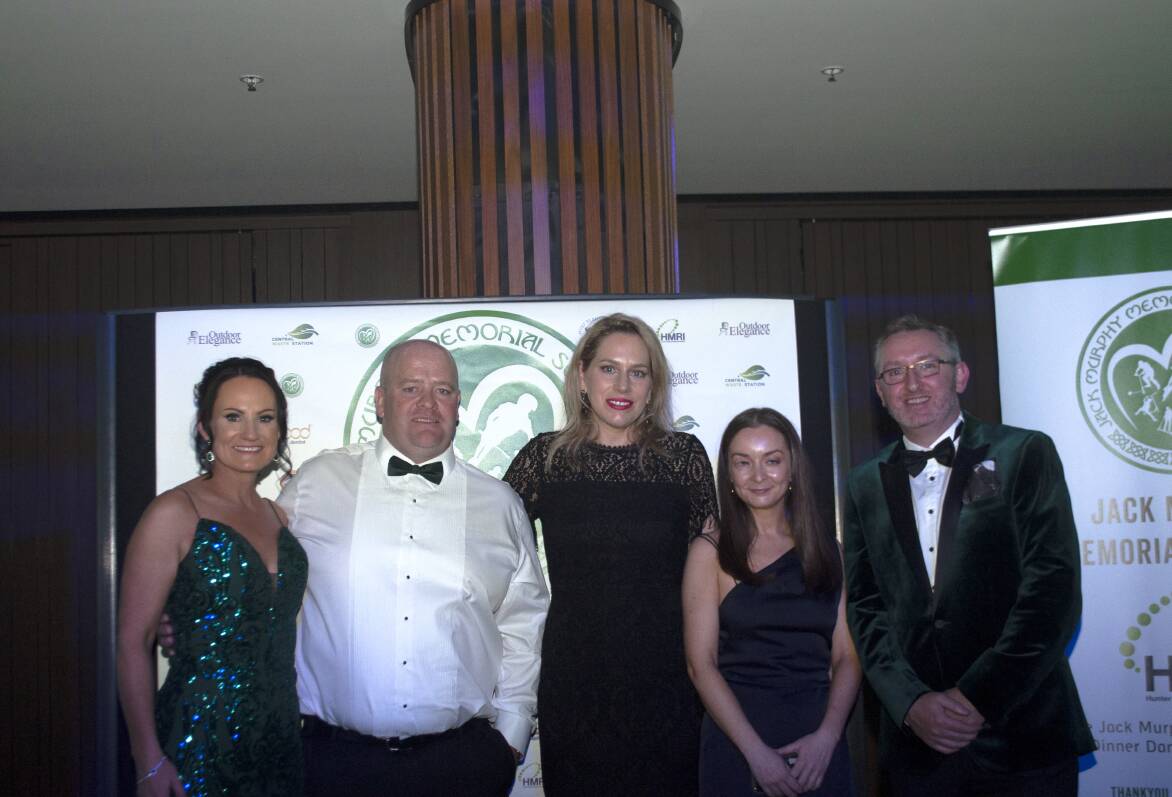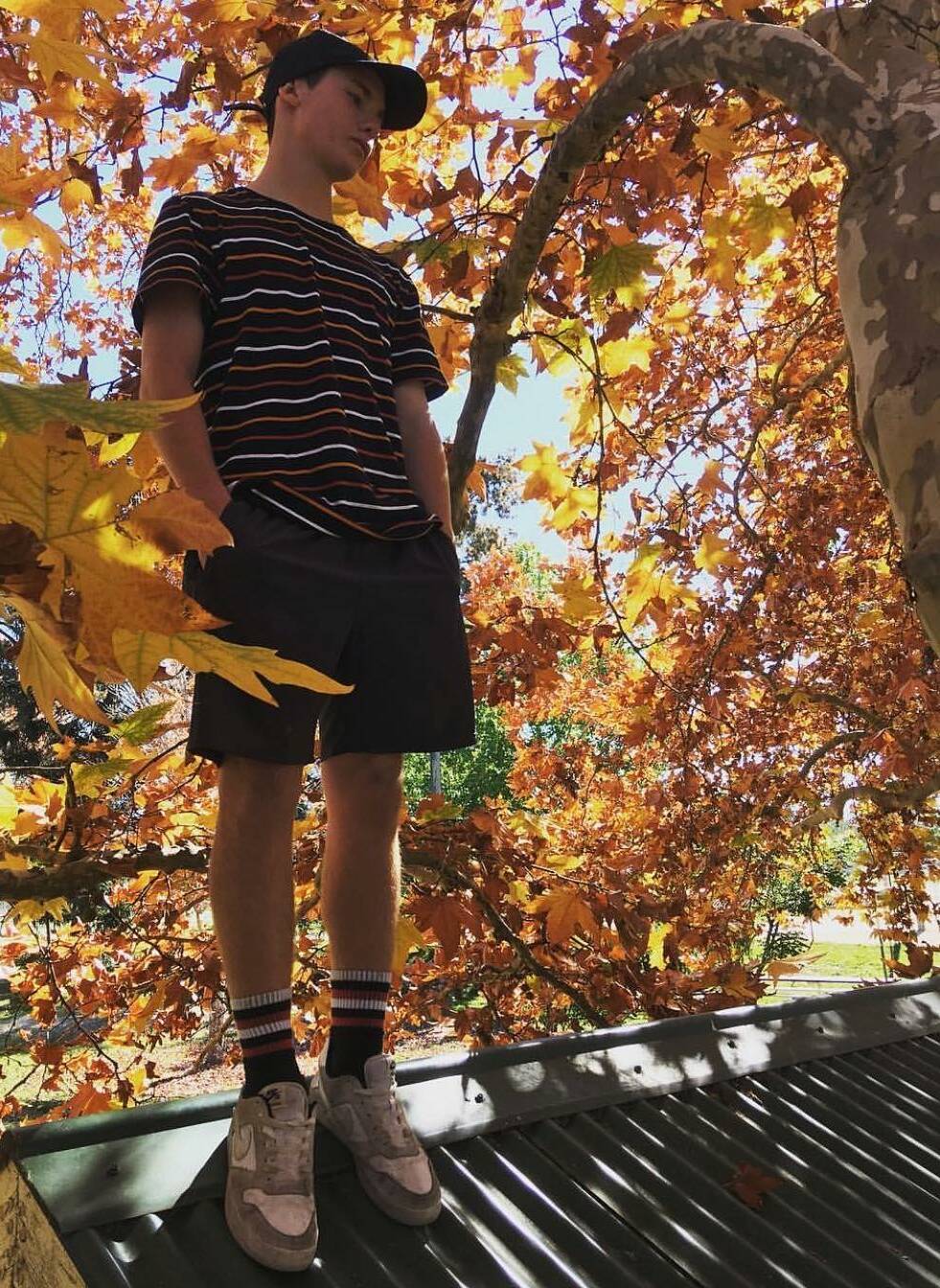
HUNTER students, workers and athletes will have access to free training in a new CPR technique, thanks to a local family determined to prevent others losing a loved one to sudden cardiac arrest.
Irish born Siobhan Lavin Murphy, Tamara Bond and Associate Professor Brendan Boyle established the Jack Murphy Memorial Society in 2019 following the unexpected death of beloved son, brother and scooter star Jack, 14, on June 2, 2018.
The society aims to bring together the Hunter's Irish community, stage scooter events and raise awareness about and funds to fight sudden cardiac arrest.
Ms Lavin Murphy said fundraising before and at the society's second annual dinner dance on Saturday helped collect a "phenomenal" more than $70,000 - double their goal - for the Hunter Medical Research Institute.
It will go towards expanding the Hunter Heart Safe CPR program, plus research to measure its success.

RELATED
-
Remembering Jack Murphy: creating a legacy for a life cut short
- Jack Murphy, 14, has been remembered in a moving funeral service at Sacred Heart Cathedral in Newcastle
- In the 21st Century, data is the world's most valuable resource - what happens to it after we die?
- Scooters salute Jack Murphy at inaugural competition in his honour
-
Celebrating scooter star Jack Murphy's 16th birthday: his legacy to live on in research
"If this can save someone from going through the heartache we've gone through, if they can save just one family going through it, it's awesome," Ms Lavin Murphy said.
"Jack affected everybody, I don't think he actually knew the number of hearts he touched.
"I just had to throw all my grief, my anger, my anxiety into something and this was my way of doing it.
"This is continuing Jack's legacy. This is something he would have wanted himself as well."
HMRI director Professor Frances Kay-Lambkin said the amount raised was transformative.
"I feel like we could be literally saving lives every single day," she said.
"We never know when we might need CPR, it could happen when you're running cross country or playing AFL or having an athletics carnival at a school.
"It's that space between realising that CPR is needed and being able to then deliver it that is that critical part in raising someone's chance of survival and so we want to get that gap down to zero.
"I would love to see every school student in the region trained, I would like to see their parents trained and I would like the Hunter region to be the leading place and the safest place in all of Australia to come and engage in work and study and sport - because the community has got your back."
Professor Kay-Lambkin said retrieval medicine experts Dr Mark Miller and paramedic Jeremy Pallas established Hunter Heart Safe because they were "increasingly distressed and upset by arriving on site to things like cardiac arrests or people collapsing and there being bystanders around who hadn't commenced CPR because they froze or the technique was a bit complicated or they didn't know how to start".
"When that happens, if CPR isn't started pretty well straight away, it leads to a negative outcome in 90 per cent of cases," she said.
"Even something as simple as starting CPR can really improve people's chances of surviving whatever it happens to be that has caused them to collapse."
She said Dr Miller and Mr Pallas had scoped the world and found a "less complicated" CPR model in Canada that they've brought back to the Hunter. It involves only chest compressions and no mouth to mouth breathing.
"It's as effective, in terms of comparing it against the one that involves a combination of techniques, and it's also a technique that young kids can learn, that older adults who might not be as strong as robust adults can learn and they can implement the technique with a good effect," she said.
"They're volunteering in their own time to run this program and they've been able to improve survival rates by people who have applied this technique by 60 per cent, which is pretty amazing."
She said the pair had been providing the training to groups who contacted them, but hadn't yet been able to develop it or roll it out broadly because of their work responsibilities.
"Siobhan and the Jack Murphy Memorial Society have raised so much money that they can now set up a team of people to go out to schools, to workplaces and to sporting clubs throughout the Hunter region and train people in this technique, so they can increase the reach to the whole community," she said.
"We can be more proactive and actually promote that the program exists, because we now have the resources behind it to deliver on what the demand will be for this service."
The funding will also support HMRI implementation scientist Professor Luke Wolfenden to ensure the program is taught in a way that will help people remember the technique.
"He'll be testing whether, in a couple of months time after training, people can still recall the technique and use it and also whether it's going to have the impact we think it will, and that is making that 60 per cent improvement in outcome be there for all members of the community but maybe even raise it even more."
Professor Kay-Lambkin said the new technique will help people who might have Jack's condition, as well as those who need CPR for other reasons.
"It's so exciting and the only moment of pause is that it's come off the back of Jack's death in 2018," she said.
"What I said to Siobhan on Saturday was I don't know what it's like to lose a child and I don't know if that resilience and that resolve that she and her family have shown since Jack's death is in me, I don't know if I have it.
"But what I do know is this research will reduce the risk that I'm going to have to find out and for me that was what was so special and important about being part of the project, is it means other families will have a reduced risk of finding out whether and how they cope with something like Jack's death."



.png?w=600)



